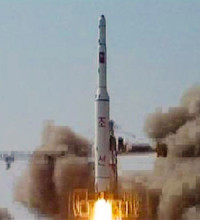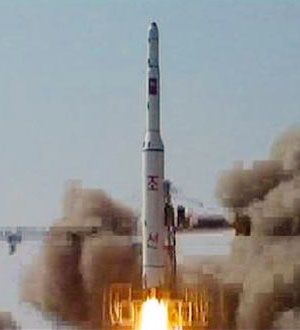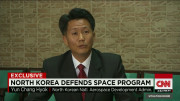 Signaling that it intends to pursue space exploration and the launch of more satellites, the DPRK’s parliament on Monday voted to establish a State Space Development Bureau.
Signaling that it intends to pursue space exploration and the launch of more satellites, the DPRK’s parliament on Monday voted to establish a State Space Development Bureau.
The Supreme People’s Assembly on Monday also voted into effect a law on space development, reported KCNA without detailing the law.
The news was reported by KCNA but there were few details on the bureau or who would head it. The Korean Committee of Space Technology had previously been the top body on space development and whether it will continue was also not clear.
The decision of the SPA was reported in brief form by the state-run news agency:
The DPRK is a full-fledged satellite manufacturer and launcher.
It is an invariable stand of the DPRK to develop the country into a world-class space power by exercising its legitimate right to space development for peaceful purposes.
To step up economic construction and improve the people’s standard of living by radically developing the space science and technology of the country and guide and manage all the space activities of the DPRK in a uniform way, the SPA decides as follows:
The DPRK State Space Development Bureau shall be set up.
The bureau is a state central institution which guides and manages the supervision and control over the working out of a space development program and its implementation and space development work in a uniform way.
The Cabinet of the DPRK and other institutions concerned shall take practical measures to implement this decision. — KCNA, April 1, 2013.
North Korea last year angered neighbors and the U.N. Security Council twice by attempting to put satellites into orbit. While the first of those launches is widely believed to have failed, the second succeeded in putting an object into orbit. Despite detecting the satellite, no radio signals were ever observed so it’s suspected the craft suffered a malfunction.
The launch attempts were controversial because they were largely seen as a way to skirt a ban on missile testing, since many rocket components are common to missiles.
The country has repeatedly cried foul saying the satellite launches are just that, but many observers disagree.





